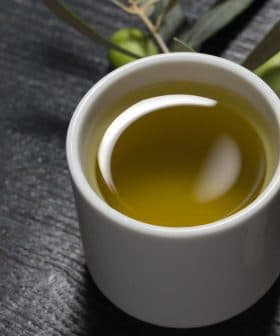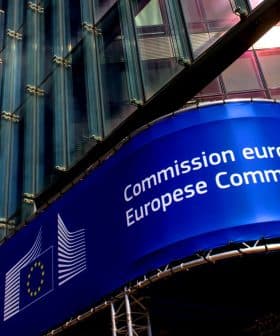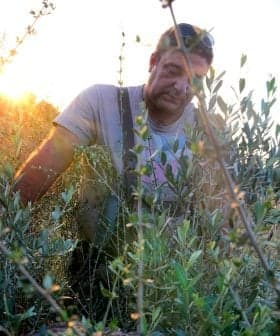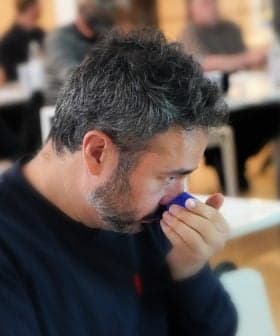Brightland Drops Claims that Most Olive Oils in U.S. Are Adulterated, Rancid
Brightland voluntarily removed a statement from its website alleging widespread olive oil adulteration in the U.S. after the NAOOA filed a complaint, leading to the National Advertising Division recommending the claims be removed due to lack of support. The NAOOA expressed satisfaction with Brightland’s decision, hoping it will set a precedent to prevent other companies from profiting from olive oil misinformation.
California-based olive oil marketer Brightland has voluntarily removed a statement from its website alleging widespread olive oil adulteration in the United States after the North American Olive Oil Association (NAOOA) filed a complaint with an advertising watchdog group.
The NAOOA challenged Brightland’s claim that “most of the olive oil sold in the U.S. is rotten, rancid or adulterated,” causing nausea and stomach pains.
Our goal in all of these efforts is to ensure that misinformation isn’t used unfairly to either promote or denigrate products in our industry.
The claims appeared on Brightland’s website, social media pages and online articles in other outlets about the company and its founder, Aishwarya Iyer.
“After I found out that the majority of the olive oil Americans consume is rotten, rancid and adulterated,” Iyer told an online magazine, Los Angeles Confidential, “I wanted to create a solution that was U.S. made, beautiful, and authentic and that’s how Brightland was born.”
See Also:Five Years Later, UC Davis Report Still Sends ShockwavesAccording to the National Advertising Division (NAD) of BBB National Programs, a non-profit, Brightland volunteered to remove the claim from its website permanently. As a result, NAD did not conduct a review of the veracity of the claims.
However, the NAD did determine that Brightland’s claims were unsupported and disparaged other olive oils on the market, recommending that the claims be removed.
Brightland said that it disagreed with NAD’s conclusion but “in deference to the self-regulatory process, Brightland has modified the language of the Founder’s Note and will take NAD’s comments into account.”
There was no mention of modifying or removing the myriad of disparaging statements attributed to Iyer in other media outlets.
Brightland’s original claim likely stems from a 2011 report from the University of California-Davis that found 73 percent of the five top-selling imported “extra virgin” olive oil brands in the U.S. that were sold in California did not meet the International Olive Council’s standards for extra virgin olive oil.
“Sensory defects are indicators that these samples are oxidized, of poor quality and/or adulterated with cheaper refined oils,” the seven authors wrote.
The report was a follow-up to UC Davis’ controversial 2010 report that found that 69 percent of imported olive oil samples and 10 percent of California olive oil samples labeled as extra virgin olive oil failed to meet IOC standards.
Wide media coverage of the two-part report, which was funded in part by California olive oil producers, largely ignored the limited sample size – 186 olive oils from 20 brands – and instead inferred that the results of the UC Davis study applied to the entire North American market.
UC Davis has since clarified that the results of the study “should not be used to characterize the quality or authenticity of olive oil currently available in California or elsewhere.”
While estimating the actual amount of olive oil adulteration and mislabeling in any market is very difficult and imprecise, small studies conducted in other parts of the country have yielded very different results.
For example, a 2015 study from the U.S. Food and Drug Administration found that only three of 88 extra virgin olive oil samples taken from Washington, D.C. supermarkets “failed to meet purity criteria, indicating possible adulteration with commodity oil and/or solvent-extracted olive oil.”
Joseph R. Profaci, the executive director of the NAOOA, told Olive Oil Times that he was satisfied with Brightland’s decision to remove the claims from their website after years of efforts to refute them.
“We’re pleased Brightland voluntarily and permanently agreed to cease making unsupported and false claims about the alleged ‘rotten, rancid or adulterated’ quality of olive oil sold to U.S. consumers,” he said.
“To us, this is an admission that the UC Davis reports from 2010/11 do not support the claims that Brightland was making, and that there is no other credible support they could offer for such sensational claims,” Profaci added.
Profaci hopes the decision may serve as a precedent to prevent other companies from profiting from olive oil misinformation.
“Brightland is not the only company that makes such claims,” he said. “Our goal in all of these efforts is to ensure that misinformation isn’t used unfairly to either promote or denigrate products in our industry.”









